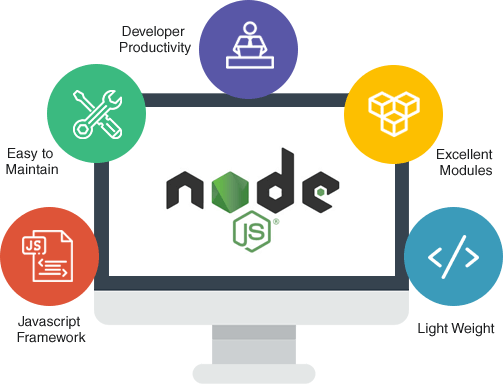Bydly Insights
Explore the latest news, trends, and insights across various topics.
Node.js: Where JavaScript Meets the Server Side
Discover how Node.js bridges JavaScript and the server side, transforming web development. Unlock new possibilities today!
Understanding Node.js: The Power of JavaScript on the Server Side
Node.js is a powerful runtime environment that enables JavaScript to be executed on the server side. Traditionally, JavaScript was confined to the browser, primarily for client-side scripts. However, with the introduction of Node.js, developers can now build scalable and high-performance network applications using JavaScript. This has resulted in a paradigm shift, allowing for JavaScript to unify development across both client and server, leveraging the same language and libraries.
One of the standout features of Node.js is its non-blocking, event-driven architecture, which allows for handling multiple requests concurrently without compromising performance. This is particularly beneficial for applications requiring high throughput, such as real-time web applications and APIs. In addition, using JavaScript on the server side opens up a myriad of opportunities for developers, including:
- Improved productivity by using a single language across the entire stack.
- A vast ecosystem of libraries and frameworks available through npm.
- Enhanced performance thanks to the V8 engine, which compiles JavaScript directly to machine code.

5 Common Use Cases for Node.js in Modern Web Development
Node.js has gained immense popularity in modern web development due to its ability to handle asynchronous operations efficiently. Here are five common use cases where Node.js shines:
- Building Real-Time Applications: Node.js is particularly well-suited for applications that require real-time communication, such as chat applications, online gaming, and live streaming services. Its event-driven architecture enables developers to build systems that can handle numerous concurrent connections with minimal latency.
- API Development: Node.js is an excellent choice for creating RESTful APIs, allowing developers to serve data dynamically and manage requests seamlessly. The combination of its asynchronous nature and wide range of libraries makes it a top choice for backend services and microservices architecture.
Furthermore, Node.js is an ideal framework for:
- Single Page Applications (SPAs): SPAs can benefit from Node.js handling server-side operations while providing a smooth user experience. With frameworks such as React and Angular integrating effortlessly, developers can create dynamic and responsive web applications.
- IoT Applications: The lightweight nature of Node.js makes it a potent choice for Internet of Things (IoT) projects, where multiple devices need to communicate in real-time. Node.js can efficiently handle numerous connections from various devices, making it a reliable option for such environments.
- Data Streaming Applications: Node.js excels at real-time data processing, making it perfect for applications that require streaming data, such as video streaming services or live data dashboards. Its capabilities allow developers to build applications that can seamlessly handle large volumes of streaming data with reducing latency.
How Does Node.js Handle Concurrency and I/O Operations?
Node.js effectively manages concurrency through its non-blocking I/O model, allowing multiple operations to run simultaneously without being held up by any single task. Unlike traditional multi-threaded servers that spawn a new thread for each request, Node.js utilizes a single-threaded event loop architecture. This design enables the server to handle numerous connections at once, where incoming requests are queued, and upon completion of I/O operations, the callback functions are executed. Consequently, this results in a more efficient use of system resources, reducing the need for context switching and enabling the application to scale seamlessly under heavy load.
When it comes to handling I/O operations, Node.js leverages the asynchronous nature of JavaScript. By employing callbacks, promises, or async/await syntax, developers can write code that doesn’t block the execution thread while waiting for I/O operations to complete. For example, when reading from a database or performing file system operations, Node.js can initiate these processes and continue executing subsequent lines of code, effectively improving response times. This non-blocking approach is crucial for building high-performance applications, allowing developers to create applications that are both responsive and capable of processing a vast number of concurrent operations.